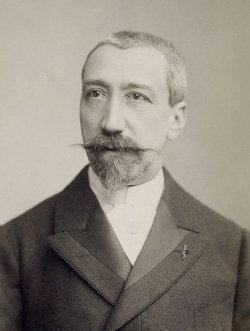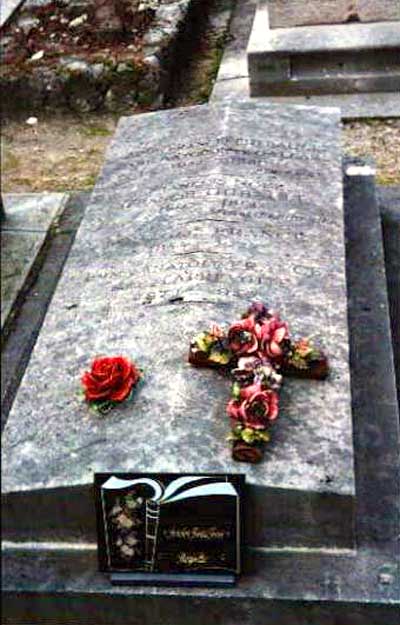Nobel Prize in Literature Recipient. Anatole France, a Frenchman, received the 1921 Nobel Prize in literature, according to the Nobel Prize committee,"in recognition of his brilliant literary achievements, characterized as they are by a nobility of style, a profound human sympathy, grace, and a true Gallic temperament." He used the pseudonym for Jacques Anatole Thibault. Although not his first publication, his first successful book was in 1881, "Le Crime de Sylvestre Bonnard," receiving a prize from the Academy of France, of which he became a member in 1896. Born François-Anatole Thibault, he was the son of an antiquarian bookseller. After being around books all his life, he received a classical education at the Collège Stanislas, a boys' school in Paris, and for a while he studied at the École des Chartes. He held a host of employment positions, such as assistant librarian at the Senate from 1876 to 1890, yet always found the time to write. He was known as a careful writer, refined, loyal to a tradition of Atticism and purity of form that is typical of classic French prose. The novels "Le Lys rouge" in 1894 and "The Garden of Epicurus " in 1895 earned him a very wide international success. His most acclaimed novels were the four-volume "Histoire Contemporaine." Among his last important works were a biography of "Joan of Arc"in 1908, "The Gods are Athirst" in 1912, and "The Revolt of the Angels" in 1914. The collected works of Anatole France were published in twenty-five volumes between 1925 and 1935. After World War I, he along with Nobel Prize recipients, a German, Rudolf Eucken and an Englishman, John Galsworthy, wrote a collection of articles published by the Nobel Library calling upon the United States to develop "such moral strength as will successfully overcome all conflicts and lead to splendid results, for the benefit not only of the American nation, but of all mankind." Besides his two dozen of prose, he wrote three collections of poetry, four memoirs, four plays, and a dozen literary and social criticisms. In 1877, he married Valérie Guérin de Sauville, with whom he had one daughter before the couple divorced in 1893. Later, he was known to have at least a couple of serious relationships, of which both died, before a second marriage in 1920. He was very outspoken politically and toward the end of his life, he supported the French Communist Party.
Nobel Prize in Literature Recipient. Anatole France, a Frenchman, received the 1921 Nobel Prize in literature, according to the Nobel Prize committee,"in recognition of his brilliant literary achievements, characterized as they are by a nobility of style, a profound human sympathy, grace, and a true Gallic temperament." He used the pseudonym for Jacques Anatole Thibault. Although not his first publication, his first successful book was in 1881, "Le Crime de Sylvestre Bonnard," receiving a prize from the Academy of France, of which he became a member in 1896. Born François-Anatole Thibault, he was the son of an antiquarian bookseller. After being around books all his life, he received a classical education at the Collège Stanislas, a boys' school in Paris, and for a while he studied at the École des Chartes. He held a host of employment positions, such as assistant librarian at the Senate from 1876 to 1890, yet always found the time to write. He was known as a careful writer, refined, loyal to a tradition of Atticism and purity of form that is typical of classic French prose. The novels "Le Lys rouge" in 1894 and "The Garden of Epicurus " in 1895 earned him a very wide international success. His most acclaimed novels were the four-volume "Histoire Contemporaine." Among his last important works were a biography of "Joan of Arc"in 1908, "The Gods are Athirst" in 1912, and "The Revolt of the Angels" in 1914. The collected works of Anatole France were published in twenty-five volumes between 1925 and 1935. After World War I, he along with Nobel Prize recipients, a German, Rudolf Eucken and an Englishman, John Galsworthy, wrote a collection of articles published by the Nobel Library calling upon the United States to develop "such moral strength as will successfully overcome all conflicts and lead to splendid results, for the benefit not only of the American nation, but of all mankind." Besides his two dozen of prose, he wrote three collections of poetry, four memoirs, four plays, and a dozen literary and social criticisms. In 1877, he married Valérie Guérin de Sauville, with whom he had one daughter before the couple divorced in 1893. Later, he was known to have at least a couple of serious relationships, of which both died, before a second marriage in 1920. He was very outspoken politically and toward the end of his life, he supported the French Communist Party.
Bio by: Linda Davis
Advertisement
See more France memorials in:
Records on Ancestry
Sponsored by Ancestry
Advertisement




